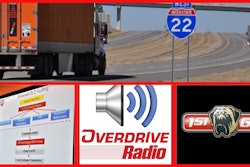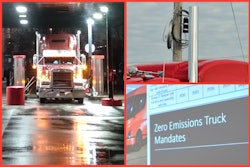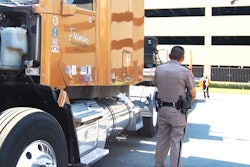The Federal Motor Carrier Safety Administration's safety review activity -- most owner-operators refer to federal/state reviews of carrier operations as audits -- has for the second year in a row maintained what has been a huge uptick in purely off-site-conducted audits. The agency had been moving toward more off-site audits prior to 2020, but with the pandemic and the desire to limit person-to-person contact between trucking company personnel and federal and state investigators, off-site audits' share of all investigatory activity ballooned in 2020, and has continued high into 2021.
Yet that explosion in off-site activity coincided with general decline in the number of overall reviews/investigations conducted by the FMCSA and its state law enforcement partners. Compared to 2018, total audits conducted in 2021, with data current as of this week in the federal Analysis and Information system, were down by a measure of 17%. And despite a policy shift early in the pandemic to allow safety ratings to be issued as a result of what the agency calls "remote on-site" audits, conducted largely away from a carrier's place of business, the decline in those safety ratings issued is even more stark. Most reviews, in contrast with prior years, had a negative outcome, too. A majority of all audits in 2021 that concluded with a safety rating ended with a carrier getting a Conditional rating.
There was a whopping 49% decline in audits that resulted in a rating – whether Satisfactory, Conditional or Unsatisfactory – between 2018 and 2021, with much of that decline occurring in the first three years of that period. Measured from 2017, when almost 6,000 audits resulted in a rating or rating change, it's a 54% drop-off in safety rating activity from an agency that has never been shy about stressing its safety-first mission. FMCSA says what it characterizes as "off-site" audits cannot result in a safety rating change -- given the well-documented shift to more purely off-site investigations in its numbers, that could well account for the marked decline in safety ratings issued.
For owner-operators and small fleets, achieving a Satisfactory rating can be the difference between doing direct business with some customers and not. A California small fleet recently shared a document with Overdrive detailing an apparent policy of an ocean-shipping giant that required any carrier hauling under its intermodal-interchange agreement to have a Satisfactory rating, for instance. That carrier, Maersk Line Ltd., did not respond to Overdrive's question about whether that requirement was a new addendum or not.
In a time when intermodal truckers' services are in very high demand, it would at least seem counterintuitive to newly limit the number of carriers who could do business with a ship line simply by virtue of being unrated in a federal/state rating program that's never come close to rating the entire universe of trucking businesses.









